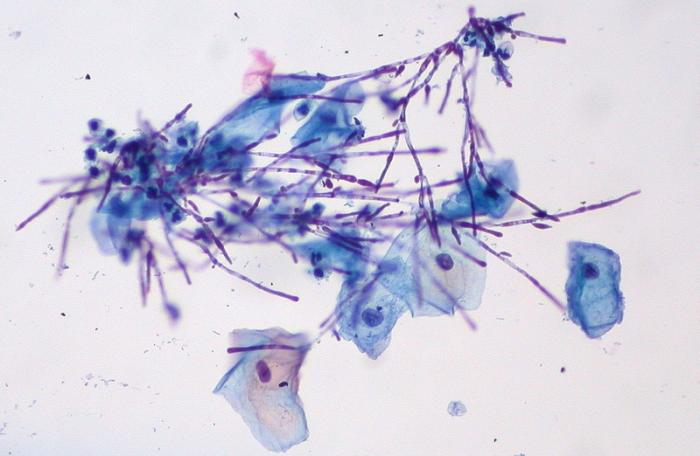Excuse Buster: The hidden health dangers of fungi

PHUKET: “It is ironic that this humble fungus, hailed as a benefactor of mankind, may by its very success prove to be a deciding factor in the decline of the present civilization”, said Dr John I Pitt, in The Genus Penicillin, 1979.
‘Antibiotics save lives.’ But has our overuse of antibiotics for killing bacteria contributed to creating a dangerous internal environment for the growth of another pathogen – fungi?
The Fungal Link by Doug Kaufman is one of the books that transformed the way I approach clients, and his message is revolutionary. He believes that the simple fungus is behind most of our health ills today from obesity, to hormone disruption, skin disorders and mood imbalances.
Is he being too general – could one group of organisms really cause so much disease? After many years using his protocols, including his anti-fungal diet and many of his supplement plans, I’m convinced there is a strong foundation to his belief.
If the overuse of antibiotics leads to intestinal imbalances and fungal infections, why don’t doctors know this? Kaufman says it’s because fungal infections were rare 50 years ago when pharmaceutical drugs were also rare.
The most common organism implicated in fungal infections is Candida, which is found in the human digestive tract, mouth, and genital region. Under normal circumstances, levels of Candida are controlled by beneficial bacteria. However, if the bacteria-fungus balance is upset by the use of antibiotics, cortisone, birth control pills, a compromised immune system, or living in a moldy environment, this can lead to an overgrowth of Candida.
Fungi grow in a plant-like way, sending roots into the intestinal wall looking for food. These roots bore holes through the intestinal tract causing a condition now known as “leaky gut syndrome”. This means that damage to the intestinal wall is allowing bacteria, bacterial debris, food, pollens, environmental pollutants and many other materials to bypass the normal protective barriers and enter the body. Could the rise of fungus have anything to do with the current allergy epidemic? I think they definitely play a role.
What about hormone disruption? Could Candida be responsible for the current epidemic of hormonal dysfunction, from thyroid disease, adrenal fatigue and sexual health disorders? Many experts think so.
Fungal overgrowth can cause so many different symptoms, that the best way to know if you are suffering from it is to review your environment, diet, lifestyle and stress.
ENVIRONMENT
Humidity and mold go hand in hand. Living in Phuket we need to be vigilant in reducing mold exposure in our home and work environment. Regularly check areas that may be damp as these spots often harbor mold growths. Use vinegar or bicarbonate of soda to clean surfaces, as both are natural, non-toxic products that also remove mold.
DIET
You will essentially need to follow a low carbohydrate diet for three to 12 months depending on severity. This includes the removal of grains, sugar, most fruits and starches. So it is a diet high in protein, with lots of good fats, nuts and seeds, and plenty of vegetables. Cultured dairy such as yogurt and kefir can also play a good role in the diet, providing a natural source of probiotics that fight the fungi.
LIFESTYLE AND STRESS
Stress and quality sleep play a greater role than most people think when it comes to healing the body. If the adrenal glands are fatigued, then the ability to heal the damage caused by fungi is compromised. Also lifestyle and how one spends free time (at the pub, in front of TV, or moving about outdoors) often play key roles in health.
BATTLING THE FUNGI
Consuming probiotics can help. I recommend taking an anti-oxidant supplement which includes vitamin A, C, E and zinc or selenium, as they are antifungal. Vitamin D plays a key role in many physiological functions including immune system strength and metabolism.
Two of my favorite fungi fighters are Colloidal Silver (found in most health stores in Phuket) and garlic (a favorite in Thai cooking).
WHEN YOU START WINNING
This is such an important aspect of this process. So many people have embarked on an antifungal regime only to stop due to the symptoms of the detox. When the fungi start to die off, you can experience symptoms like nausea, headaches, colds, flu, mood swings, depression and joint/muscular pain. So I recommend people who feel they suffer from mold or fungi, to work with a professional and always take it slow. You need to give your body the chance to remove the poison the fungus is releasing as it dies.
For anyone embarking on an anti-Candida program please read the book The Fungus Link or visit www.knowthecause.com by Doug Kaufmann featured in the movie Moldy produced by Bulletproof Coffee’s inventor Dave Asprey.
Craig Burton is a Certified Sports Nutritionist (CISSN) with a Bachelor of Science degree (Sports Science) and a National Academy of Sports Medicine (PES) certification.
— Craig Burton
Latest Thailand News
Follow The Thaiger on Google News:


























